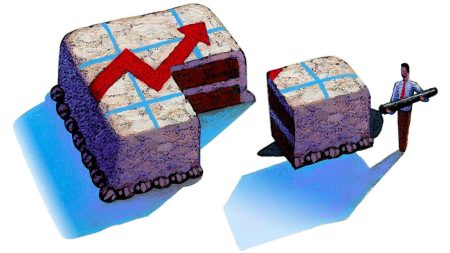The new British TV series “The Jackal,” streaming on Peacock and featuring Eddie Redmayne, presents an intriguing exploration into the complex life of a paid assassin. The narrative compels viewers to empathize with The Jackal, a character who simultaneously engages in morally reprehensible acts, such as killing innocent people, all while ardently yearning for a smooth exit from his treacherous career. By drawing viewers into his world, the show manages to evoke a strange sense of support for him—not just in his violent pursuits, but also in his quest for a peaceful retirement. However, it’s not just the thrill of the action that grips the audience; the dramatic tension surrounding The Jackal’s uncertain retirement looms large, especially after an unexpected cliffhanger at the end of Episode 7, leaving viewers eagerly awaiting the next installment.
At the heart of “The Jackal’s” drama lies a relatable dilemma: retirement planning. Despite having amassed substantial wealth, The Jackal grapples with the harsh reality of his financial situation. After failing to complete a critical assassination job, he faces the potential loss of an $80 million payout, leaving him devoid of the full financial security he’d hoped for in retirement. His challenges extend beyond the immediate misfortune of his profession; they tap into a wider narrative about the complexities of planning for a future that revolves around leisure and family, goals that most viewers can understand. The Jackal’s motivation to transition into a peaceful life with his wife and young son reflects the universal dream many share of stepping back from work and enjoying family time, yet the sobering financial realities make that aspiration seem increasingly unattainable.
Diving deeper into The Jackal’s financial predicament, the show highlights the difficulty of transitioning from high-stakes employment into retirement, particularly given his lavish lifestyle. Although he boasts a substantial $20 million down payment, it’s inadequate to sustain his current spending habits of approximately $200,000 per month. This extravagant lifestyle—which includes maintaining a luxurious home and supporting family members—poses serious questions about how The Jackal could adapt to a more frugal existence post-retirement. Without aggressive measures such as Nuria returning to work or drastic lifestyle cuts, his dream of retirement becomes a lofty ambition overshadowed by practical financial limits.
Addressing career changes later in life, the show brings into focus the difficulty of acquiring transferable skills, especially for individuals like The Jackal. As many viewers might relate, transitioning into a new profession requires not only training but also a willingness to adapt to new environments—something The Jackal has yet to demonstrate successfully. His previous experience as a British Army sharpshooter does not lend itself readily to conventional career options. As the show humorously illustrates, the most applicable skills he might possess—such as explosive expertise—would render him a poor candidate for most legitimate jobs. Ironically, his solitary and violent approach may hinder him from securing employment in collaborative settings, complicating his quest for a sustainable post-assassin life.
Future episodes promise to delve deeper into The Jackal’s existential crisis, intertwining themes of survival, revenge, and the daunting specter of retirement planning. The narrative could benefit from highlighting a financial planner’s role in assisting The Jackal to navigate his precarious situation. The showrunners have the opportunity to explore real issues relating to retirement anxiety, thus providing not just entertainment but valuable commentary on modern financial realities that resonate with countless viewers. Should The Jackal seek genuine assistance, a seasoned planner might help evaluate his lifestyle against his financial capabilities, addressing questions such as his spending habits and the adjustments needed for a fulfilling retirement.
In concluding this innovative narrative journey, “The Jackal” transcends the stereotypes often associated with crime dramas. It offers a reflection on the universal quest for financial security, illustrating that behind every assassin lies a human being grappling with the anxieties of retirement and life choices. While The Jackal’s scenario may be extreme, it serves as a metaphor for the struggles that many face as they approach retirement age. By blending thrilling action with relatable financial themes, the show elevates a typical assassin story into an insightful examination of life beyond violence, one that prompts thoughtful introspection on our paths toward securing our futures. As a labor economist specializing in retirement security, I find myself unusually captivated by The Jackal’s plight, eager to see how this complex character reconciles his dual identities in upcoming episodes.










